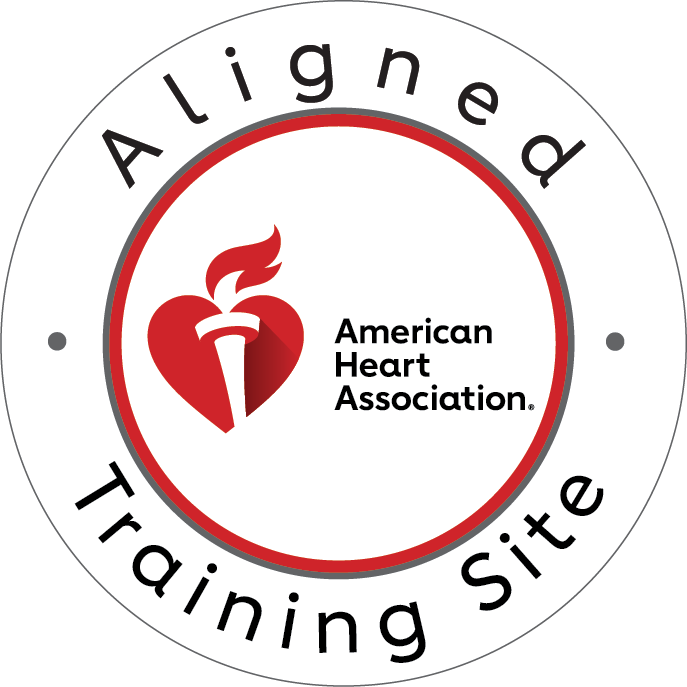Overview of AHA and Red Cross CPR Certifications
Cardiopulmonary resuscitation (CPR) is a critical life-saving skill that can mean the difference between life and death in emergency situations. Whether you’re a healthcare professional, a first responder, or simply a concerned citizen, obtaining a CPR certification is an invaluable investment in your ability to help others during critical moments.
When it comes to CPR certification, two major organizations stand out: the American Heart Association (AHA) and the American Red Cross. Both are well-respected institutions with long histories of providing high-quality CPR training. However, they have distinct approaches and target audiences, which can make choosing between them a challenging decision.
American Heart Association (AHA) CPR
The American Heart Association, founded in 1924, is a nonprofit organization dedicated to fighting heart disease and stroke. Known for its cutting-edge research and evidence-based guidelines, the AHA is widely recognized as a leader in cardiovascular care and emergency cardiovascular response.
AHA offers a variety of CPR courses, including Basic Life Support (BLS) for healthcare providers, Advanced Cardiovascular Life Support (ACLS), and Pediatric Advanced Life Support (PALS). These courses are designed to meet the needs of healthcare professionals and those working in medical settings. The AHA’s curriculum is updated regularly to reflect the latest scientific findings and best practices in resuscitation.
AHA certifications are typically valid for two years and are widely accepted in healthcare facilities across the United States. The organization’s strong focus on medical professionals means that its courses often include more in-depth coverage of physiological concepts and scenarios specific to healthcare settings.
Red Cross CPR
The American Red Cross, founded in 1881, is a humanitarian organization that provides emergency assistance, disaster relief, and disaster preparedness education. While its mission extends beyond just first aid and CPR, the Red Cross has established itself as a leading provider of these critical skills to the general public.
Red Cross offers a range of CPR courses tailored to different audiences, including basic CPR for adults, children, and infants, as well as more comprehensive courses that combine CPR with first aid and AED (Automated External Defibrillator) use. Their curriculum is designed to be accessible to a wide range of learners, from complete beginners to those refreshing their skills.
Certifications from the Red Cross are typically valid for two years, similar to AHA. However, the Red Cross offers a unique digital refresher program that allows certified individuals to review skills and extend their certification by two years without retaking the full course.
The Red Cross places a strong emphasis on workplace safety and community preparedness. Their courses often include scenarios and training specific to non-medical settings, making them particularly relevant for teachers, coaches, lifeguards, and other professionals who may need to respond to emergencies outside of a healthcare environment.
Comparing AHA and Red Cross CPR
While both organizations teach the fundamentals of CPR based on internationally recognized guidelines, there are some key differences in their approaches:
- Core techniques: Both AHA and the Red Cross teach similar core CPR techniques, as these are based on scientific consensus. The basic steps of checking for responsiveness, calling for help, performing chest compressions, and giving rescue breaths are consistent across both programs.
- Course structure: AHA courses tend to be more rigorous and detailed, especially for healthcare providers. Red Cross courses are often more flexible in their delivery, with options for online learning combined with in-person skills sessions.
- Target audience: AHA’s primary focus is on healthcare professionals and those working in medical settings. Red Cross caters more to the general public and workplace safety, though they do offer some healthcare provider courses as well.
- Recognition: Both certifications are widely recognized, but AHA certification is often preferred or required in healthcare settings, while Red Cross certification is commonly accepted in a broader range of industries.
Choosing the Right Certification
When deciding between AHA and Red Cross CPR certification, consider the following factors:
- Career goals: If you’re pursuing a healthcare career or already working in a medical setting, AHA certification is often preferred or required. For other professions or general preparedness, Red Cross certification may be more suitable.
- Workplace requirements: Check with your employer or prospective employers to see if they have a preference or requirement for either AHA or Red Cross certification.
- Learning style: AHA courses tend to be more intensive and medically focused, while Red Cross courses often offer more flexibility in learning methods. Consider which approach aligns better with your learning preferences.
- Renewal process: Both organizations require renewal every two years, but the Red Cross offers a digital refresher program that may be more convenient for some individuals.
- Course availability: Look into which courses are more readily available in your area or online.
Pros of AHA Certification:
- Preferred in most healthcare settings
- More in-depth medical knowledge
- Rigorous training suitable for healthcare professionals
Cons of AHA Certification:
- May be more challenging for non-medical individuals
- Less flexibility in course delivery options
Pros of Red Cross Certification:
- Widely recognized across various industries
- More flexible learning options
- Digital refresher program for easier renewal
Cons of Red Cross Certification:
- May not be preferred in some healthcare settings
- Less focus on advanced medical scenarios
CPR Indianapolis – An AHA Training Site
For those in the Indianapolis area seeking AHA certification, CPR Indianapolis stands out as an excellent option. As an official American Heart Association training site, CPR Indianapolis offers a range of AHA-certified courses, including:
- Basic Life Support (BLS) for Healthcare Providers
- Advanced Cardiovascular Life Support (ACLS)
- Pediatric Advanced Life Support (PALS)
- CPR and First Aid courses
CPR Indianapolis prides itself on providing a stress-free and hands-on learning environment. Their experienced instructors ensure that students not only learn the necessary skills but also gain confidence in their ability to apply them in real-world situations.
Conclusion
Whether you choose AHA or Red Cross certification, the most important thing is taking the step to learn these life-saving skills. Both organizations provide high-quality training that can prepare you to respond effectively in emergency situations.
For those in the healthcare field or aspiring to enter it, AHA certification through a reputable provider like CPR Indianapolis is often the best choice. For individuals seeking general preparedness or workplace safety compliance, Red Cross certification can be an excellent option.
Remember, CPR skills need to be refreshed regularly to remain effective. Whichever certification you choose, commit to staying current with your training.
Call to Action:
Don’t wait for an emergency to wish you knew CPR – take action today! If you’re in the Indianapolis area and looking for top-notch CPR certification, look no further than CPR Indianapolis. As an official American Heart Association training site, they offer the gold standard in CPR certification in Indianapolis.
Whether you’re a healthcare professional needing BLS, ACLS, or PALS certification, or someone wanting to be prepared for emergencies, CPR Indianapolis has the right course for you. Their stress-free, hands-on approach ensures you’ll not only earn your certification but also gain the confidence to use your skills when it matters most.
Take the first step towards becoming a potential lifesaver. Enroll in a CPR certification course at CPR Indianapolis today. With their expert instructors and convenient location, getting your CPR certification in Indianapolis has never been easier or more rewarding.
Don’t delay – the life you save could be that of a loved one. Contact CPR Indianapolis now to sign up for your CPR certification course and join the ranks of those prepared to make a difference in critical moments.





